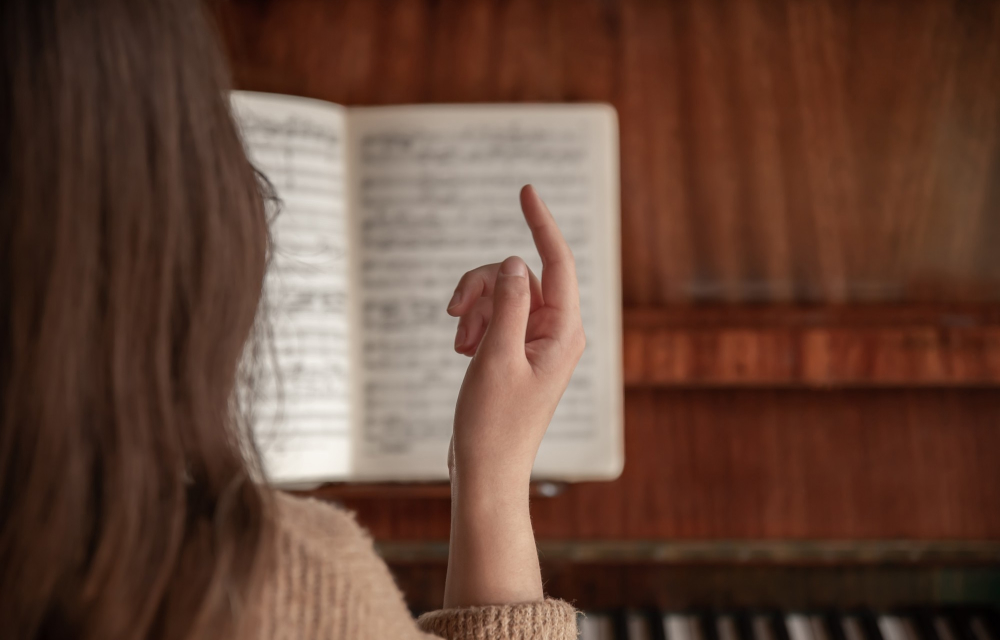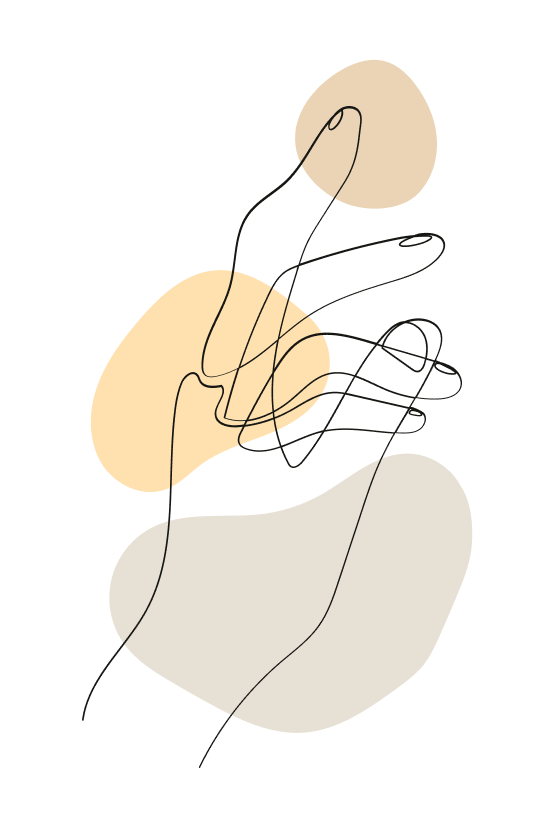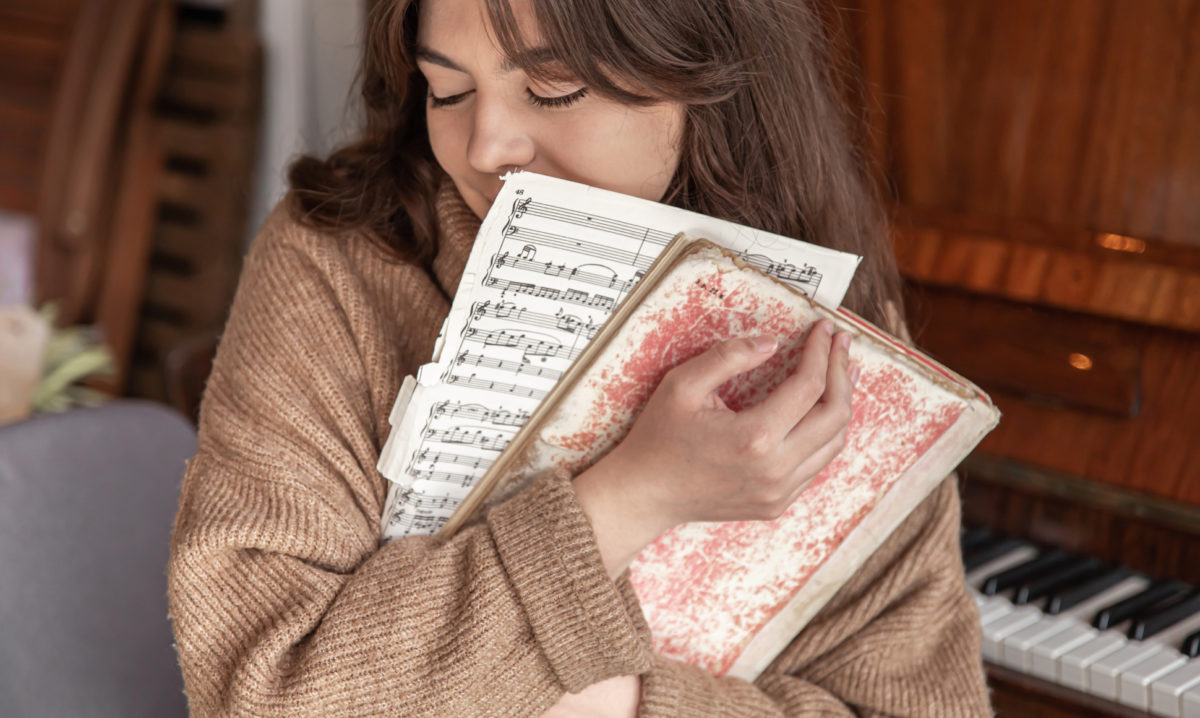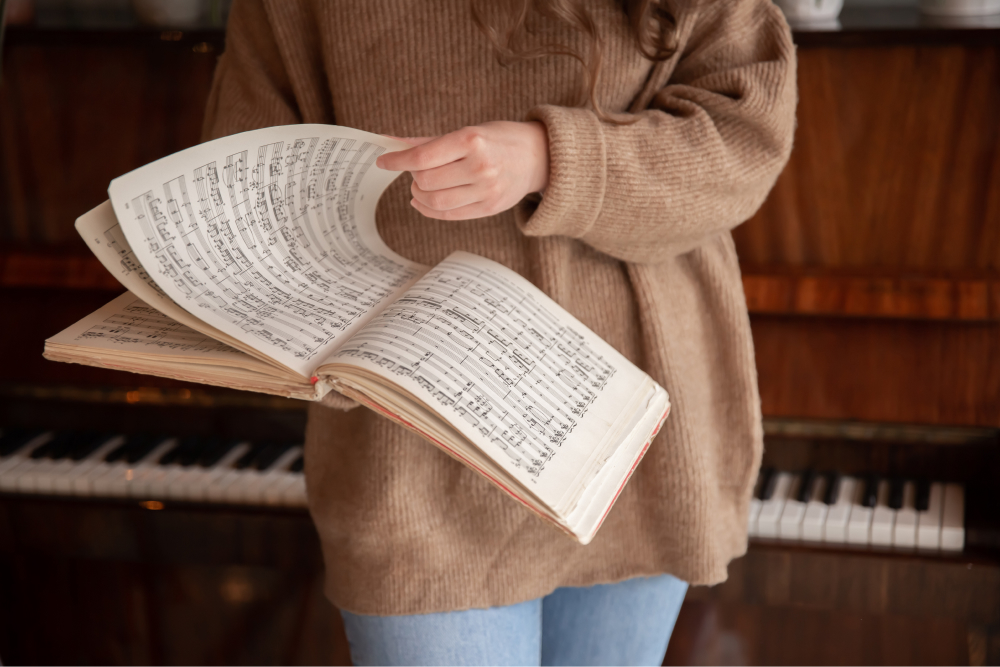Your Perfect Teacher
1. Loves the very process of teaching.
It will be apparent because she will make every attempt possible to convey the overwhelming sensation of pure enjoyment. That soaring enthusiasm will not just sustain you in your studies, it will be one joyful discovery after another.
Climb the ladder of virtuosity one lesson at a time. When your session is finished, ask yourself: what specifically did you learn or achieve in the time of the lesson? A good teacher will also point out your progress and outline the next steps.
2. Understands that it’s all about you and the music you love.
Flexibility is the answer here. Hopefully, your instructor is flexible enough to realize that to draw you into the process, you have to enjoy what you play. More often than not, it means setting aside her own preferences, and looking at music through your eyes. It doesn’t have to end with classical music, either: if you are into more popular genres, like retro or jazz, or even rock music, make sure the teacher has the capacity to progress with you along those lines.


3. Respects your own way of developing the right technique.
Each student has a different physical level of so called “running fingers”. That means that the instructor needs to show a certain level of flexibility in being able to explain and show you how to make fingering, wrist position and other technical skills work for you. Last thing you want is your very own musical mini-Hitler pounding you into submission.
Climb the ladder of virtuosity one lesson at a time. When your session is finished, ask yourself: what specifically did you learn or achieve in the time of the lesson? A good teacher will also point out your progress and outline the next steps.
4. Not just teaches you how to run your fingers quickly,
but develops in you a strong, intuitive understanding of why the skill is necessary in the first place. Different musical pieces are very much like people: you have know how to approach them to respect their unique personalities:
If a classical piece, like Mozart’s sonata, is wonderfully balanced,
…And a romantic work (for instance, Shubert or Chopin) is an emotional rollercoaster.
..Then, a more contemporary work (Contemporary Classics, like Prokofiev or Corigliano) reflect our dynamically insane lives will have distinctly sharp rhythm, and the unusual harmony.

5. Helps you achieve an expressive piano performance.
Whether sharing your thoughts with a friend (dialogue) or thinking something to yourself (monologue), you are either in agreement or disagreement (being in disagreement with yourself may be a troubling sign worth checking into, but let’s look at it in a non-clinical way, for the argument’s sake). It’s deciphering that contrast or harmony that leads to understanding of the music. A good teacher will help you decode the work’s inner meaning without ever spelling it out for you. That should happen every time, and when it does, you pretty much have no choice but to play with great expression.
6. Teaches you how to express through music what’s important to you in real life.
Do you ever, as a listener, wonder why talented performers have such radically different interpretations of the same musical piece and yet, despite their differences, never fail to touch you so deeply? They are able to bring real, live human emotions into their treatment of the work, and lift it to a universally human level. Your piano teacher will inspire you bring your own soul to the instrument every time you touch the keys.


7. Gives you a chance (or more like, multiple chances) to activate your powers of association –
leading to a deeper understanding of the musical work. Your teacher will pepper you with examples and metaphors, to help you physically relate to the subject, rather than overstrain your brain by being overly theoretical.
For instance, to help a student understand the wrist staccato, she will give you a jokingly vivid example using reins on a horse.
8. Shows you the right methods for sight-reading, so that it becomes a joy rather than a drag.
You teacher will crack open that magic toolbox, and give you quick, easy, painless shortcuts and tools that will help tremendously in getting comfortable around sight-reading ANY new work. There are generally applicable skills that you can develop to really progress at sight-reading, such as: learning how to see the whole page of music and understanding what goes on there, noticing everything that does or does not repeat, identifying exact patterns and their variations. other words, get inside the composer’s “hide” and follow his logic.
Last, but not least: HAS HUMOR!
Without humor, without that light-hearted spark, any kind of progress is doomed to become drudgery. Laughing (often at your own mistakes), making jokes, is so crucial to success. It takes tremendous courage for the student to climb this ladder, and having humor is key to not getting exhausted along the way. It’s true that some instructors will have a more weird sense of humor than others, but that’s fine, too. That quirkiness will make you smile all the more.
